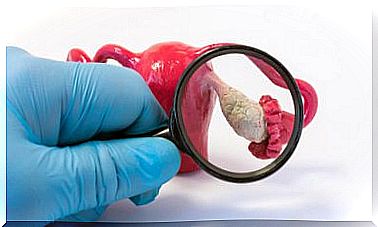Can You Live Without A Thyroid?
Thyroid hormones are involved in regulating body temperature, heart rate, and many other things. Living without a thyroid is possible, but considering all the organ systems involved, it is necessary to take measures that preserve the functions of the body.

The thyroid is one of the most important glands in the body. It is found at the base of the neck and is responsible for regulating many aspects of metabolism. Therefore, it is normal to consider whether it is possible to live without a thyroid.
This gland exerts its function through the production of thyroid hormones, which act in almost all tissues of the body. For example, these hormones can increase heart rate, sweating, or even nutrient utilization.
Thyroid gland diseases are quite common. Everyone has ever heard of disorders such as hyper- or hypothyroidism, thyroid nodules, or even thyroid cancer. However, few people know the reality of these pathologies or how they are treated.
On many occasions it is necessary to carry out an removal of the organ, through an operation called thyroidectomy . This means living without a thyroid. In this article we explain why it is done and if you can lead a normal life after surgery.
Why do you have to live without a thyroid?

As we have already mentioned, this gland is responsible for regulating a large part of the metabolic reactions that occur in the body. For example, body temperature, the development of the nervous system or the growth of bones.
This means that thyroid hormones are essential from pregnancy, for the baby to develop properly. For the rest of life they are still necessary for survival.
However, there are many pathologies that affect this gland and whose treatment requires removal. This operation is called a thyroidectomy , and it is used to treat conditions such as:
- Thyroid nodules: these are small lumps that grow in the gland as a result of an abnormal proliferation of cells. Most of them are benign, but others are difficult to identify. For this reason, in many cases, the thyroid is removed due to the risk that they are carcinogenic.
- Goiter: consists of an enlargement of the gland. This enlargement is uncomfortable and unsightly, as it can lead to swallowing or breathing difficulties.
- Certain cases of hyperthyroidism: those in which medical treatment is not enough to control the symptoms.
- Thyroid cancer: as we have just explained, the majority of cases in which it is decided to remove the thyroid is due to the risk that it is a carcinogenic process.
It should be noted that, on some occasions, partial thyroidectomies can be performed. In these cases, only part of the gland is removed. The other part can continue to function and produce hormones.

How do you live without a thyroid?
The truth is that you cannot live without a thyroid just like that. For this, thyroid hormones are used artificially. These hormones are necessary for life. For this reason, the scientists developed drugs that contain it in a synthetic presentation.
This laboratory substance replaces all the functions of natural hormones. The most common form of administration is to take a pill once a day, usually in the morning. In addition, it must be taken on an empty stomach. Thanks to these drugs, you can live without a thyroid and in a completely normal way.
What is added is that it becomes necessary to keep track of the concentration of these hormones. It is done through blood tests.
On the other hand, it is important to know that certain medications or products can alter the absorption of synthetic hormones. Therefore, when living without a thyroid, certain aspects must be clear. Oral contraceptives and antiepileptics change the dose that needs to be prescribed.
Similarly, supplements of iron, calcium, and some foods can cause it to be poorly absorbed. All these considerations are explained by the doctors when establishing the treatment.

Do you need to be checked regularly?
Although in certain thyroid diseases this gland is removed , the truth is that you cannot live without a thyroid, unless a hormone replacement treatment is established. This artificial hormone treatment must be properly followed and monitored. Therefore, periodic medical check-ups will be necessary.
The final decision to remove the thyroid gland is made jointly by patients and treating physicians. The risks and benefits of each particular case are evaluated to proceed with the surgery. It is always the last option, although sometimes it is the only one.









